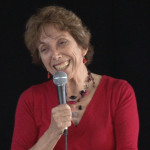My reading
Haftarah Parashat Va-yiggash
Ezekiel 37: 15 – 28
37:15 וַיְהִ֥י דְבַר־יְהוָ֖ה אֵלַ֥י לֵאמֹֽר׃
37:16 וְאַתָּ֣ה בֶן־אָדָ֗ם קַח־לְךָ֙ עֵ֣ץ אֶחָ֔ד וּכְתֹ֤ב עָלָיו֙ לִֽיהוּדָ֔ה וְלִבְנֵ֥י יִשְׂרָאֵ֖ל חברו [חֲבֵרָ֑יו] וּלְקַח֙ עֵ֣ץ אֶחָ֔ד וּכְת֣וֹב עָלָ֗יו לְיוֹסֵף֙ עֵ֣ץ אֶפְרַ֔יִם וְכָל־בֵּ֥ית יִשְׂרָאֵ֖ל חברו [חֲבֵרָֽיו]׃
37:17 וְקָרַ֨ב אֹתָ֜ם אֶחָ֧ד אֶל־אֶחָ֛ד לְךָ֖ לְעֵ֣ץ אֶחָ֑ד וְהָי֥וּ לַאֲחָדִ֖ים בְּיָדֶֽךָ׃
37:18 וְכַֽאֲשֶׁר֙ יֹאמְר֣וּ אֵלֶ֔יךָ בְּנֵ֥י עַמְּךָ֖ לֵאמֹ֑ר הֲלֽוֹא־תַגִּ֥יד לָ֖נוּ מָה־אֵ֥לֶּה לָּֽךְ׃
37:19 דַּבֵּ֣ר אֲלֵהֶ֗ם כֹּֽה־אָמַר֮ אֲדֹנָ֣י יְהוִה֒ הִנֵּה֩ אֲנִ֨י לֹקֵ֜חַ אֶת־עֵ֤ץ יוֹסֵף֙ אֲשֶׁ֣ר בְּיַד־אֶפְרַ֔יִם וְשִׁבְטֵ֥י יִשְׂרָאֵ֖ל חברו [חֲבֵרָ֑יו] וְנָתַתִּי֩ אוֹתָ֨ם עָלָ֜יו אֶת־עֵ֣ץ יְהוּדָ֗ה וַֽעֲשִׂיתִם֙ לְעֵ֣ץ אֶחָ֔ד וְהָי֥וּ אֶחָ֖ד בְּיָדִֽי׃
37:20 וְהָי֨וּ הָעֵצִ֜ים אֲֽשֶׁר־תִּכְתֹּ֧ב עֲלֵיהֶ֛ם בְּיָדְךָ֖ לְעֵינֵיהֶֽם׃
37:21 וְדַבֵּ֣ר אֲלֵיהֶ֗ם כֹּֽה־אָמַר֮ אֲדֹנָ֣י יְהוִה֒ הִנֵּ֨ה אֲנִ֤י לֹקֵ֙חַ֙ אֶת־בְּנֵ֣י יִשְׂרָאֵ֔ל מִבֵּ֥ין הַגּוֹיִ֖ם אֲשֶׁ֣ר הָֽלְכוּ־שָׁ֑ם וְקִבַּצְתִּ֤י אֹתָם֙ מִסָּבִ֔יב וְהֵבֵאתִ֥י אוֹתָ֖ם אֶל־אַדְמָתָֽם׃
37:22 וְעָשִׂ֣יתִי אֹ֠תָם לְג֨וֹי אֶחָ֤ד בָּאָ֙רֶץ֙ בְּהָרֵ֣י יִשְׂרָאֵ֔ל וּמֶ֧לֶךְ אֶחָ֛ד יִֽהְיֶ֥ה לְכֻלָּ֖ם לְמֶ֑לֶךְ וְלֹ֤א יהיה [יִֽהְיוּ]־עוֹד֙ לִשְׁנֵ֣י גוֹיִ֔ם וְלֹ֨א יֵחָ֥צוּ ע֛וֹד לִשְׁתֵּ֥י מַמְלָכ֖וֹת עֽוֹד׃
37:23 וְלֹ֧א יִֽטַמְּא֣וּ ע֗וֹד בְּגִלּֽוּלֵיהֶם֙ וּבְשִׁקּ֣וּצֵיהֶ֔ם וּבְכֹ֖ל פִּשְׁעֵיהֶ֑ם וְהוֹשַׁעְתִּ֣י אֹתָ֗ם מִכֹּ֤ל מוֹשְׁבֹֽתֵיהֶם֙ אֲשֶׁ֣ר חָטְא֣וּ בָהֶ֔ם וְטִהַרְתִּ֤י אוֹתָם֙ וְהָיוּ־לִ֣י לְעָ֔ם וַאֲנִ֕י אֶהְיֶ֥ה לָהֶ֖ם לֵאלֹהִֽים׃
37:24 וְעַבְדִּ֤י דָוִד֙ מֶ֣לֶךְ עֲלֵיהֶ֔ם וְרוֹעֶ֥ה אֶחָ֖ד יִהְיֶ֣ה לְכֻלָּ֑ם וּבְמִשְׁפָּטַ֣י יֵלֵ֔כוּ וְחֻקֹּתַ֥י יִשְׁמְר֖וּ וְעָשׂ֥וּ אוֹתָֽם׃
37:25 וְיָשְׁב֣וּ עַל־הָאָ֗רֶץ אֲשֶׁ֤ר נָתַ֙תִּי֙ לְעַבְדִּ֣י לְיַֽעֲקֹ֔ב אֲשֶׁ֥ר יָֽשְׁבוּ־בָ֖הּ אֲבֽוֹתֵיכֶ֑ם וְיָשְׁב֣וּ עָלֶ֡יהָ הֵ֠מָּה וּבְנֵיהֶ֞ם וּבְנֵ֤י בְנֵיהֶם֙ עַד־עוֹלָ֔ם וְדָוִ֣ד עַבְדִּ֔י נָשִׂ֥יא לָהֶ֖ם לְעוֹלָֽם׃
37:26 וְכָרַתִּ֤י לָהֶם֙ בְּרִ֣ית שָׁל֔וֹם בְּרִ֥ית עוֹלָ֖ם יִהְיֶ֣ה אוֹתָ֑ם וּנְתַתִּים֙ וְהִרְבֵּיתִ֣י אוֹתָ֔ם וְנָתַתִּ֧י אֶת־מִקְדָּשִׁ֛י בְּתוֹכָ֖ם לְעוֹלָֽם׃
37:27 וְהָיָ֤ה מִשְׁכָּנִי֙ עֲלֵיהֶ֔ם וְהָיִ֥יתִי לָהֶ֖ם לֵֽאלֹהִ֑ים וְהֵ֖מָּה יִֽהְיוּ־לִ֥י לְעָֽם׃
37:28 וְיָֽדְעוּ֙ הַגּוֹיִ֔ם כִּ֚י אֲנִ֣י יְהוָ֔ה מְקַדֵּ֖שׁ אֶת־יִשְׂרָאֵ֑ל בִּהְי֧וֹת מִקְדָּשִׁ֛י בְּתוֹכָ֖ם לְעוֹלָֽם׃









